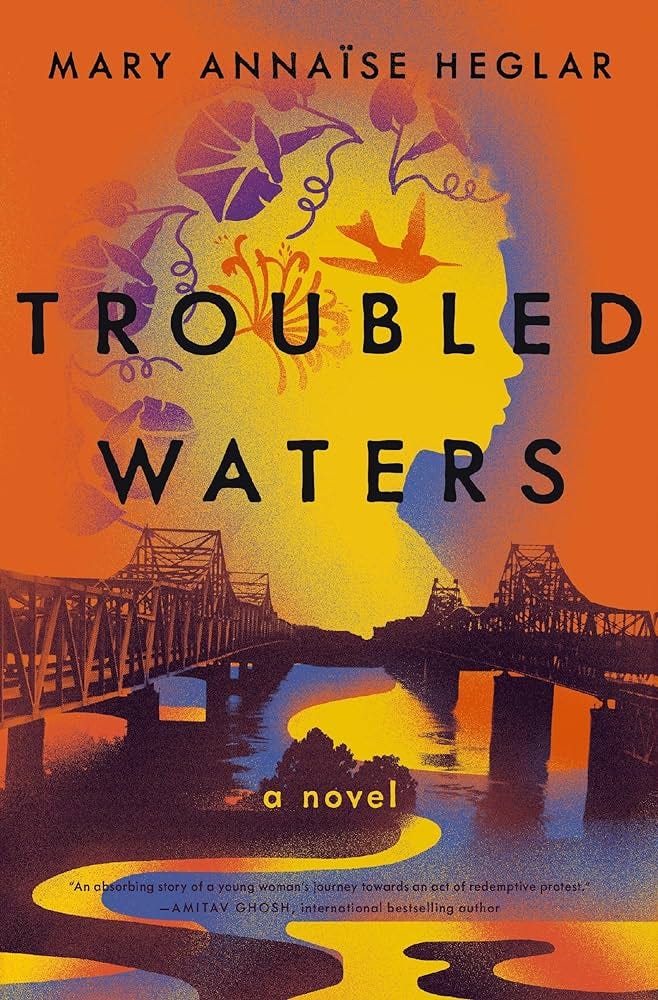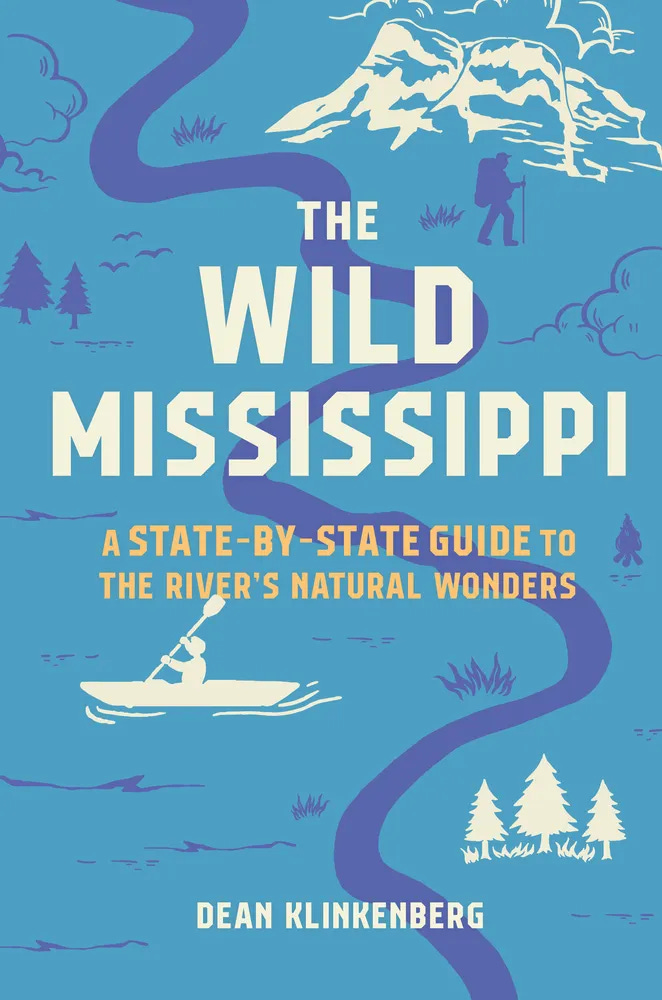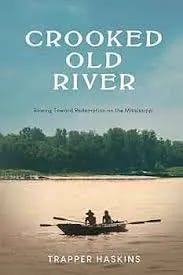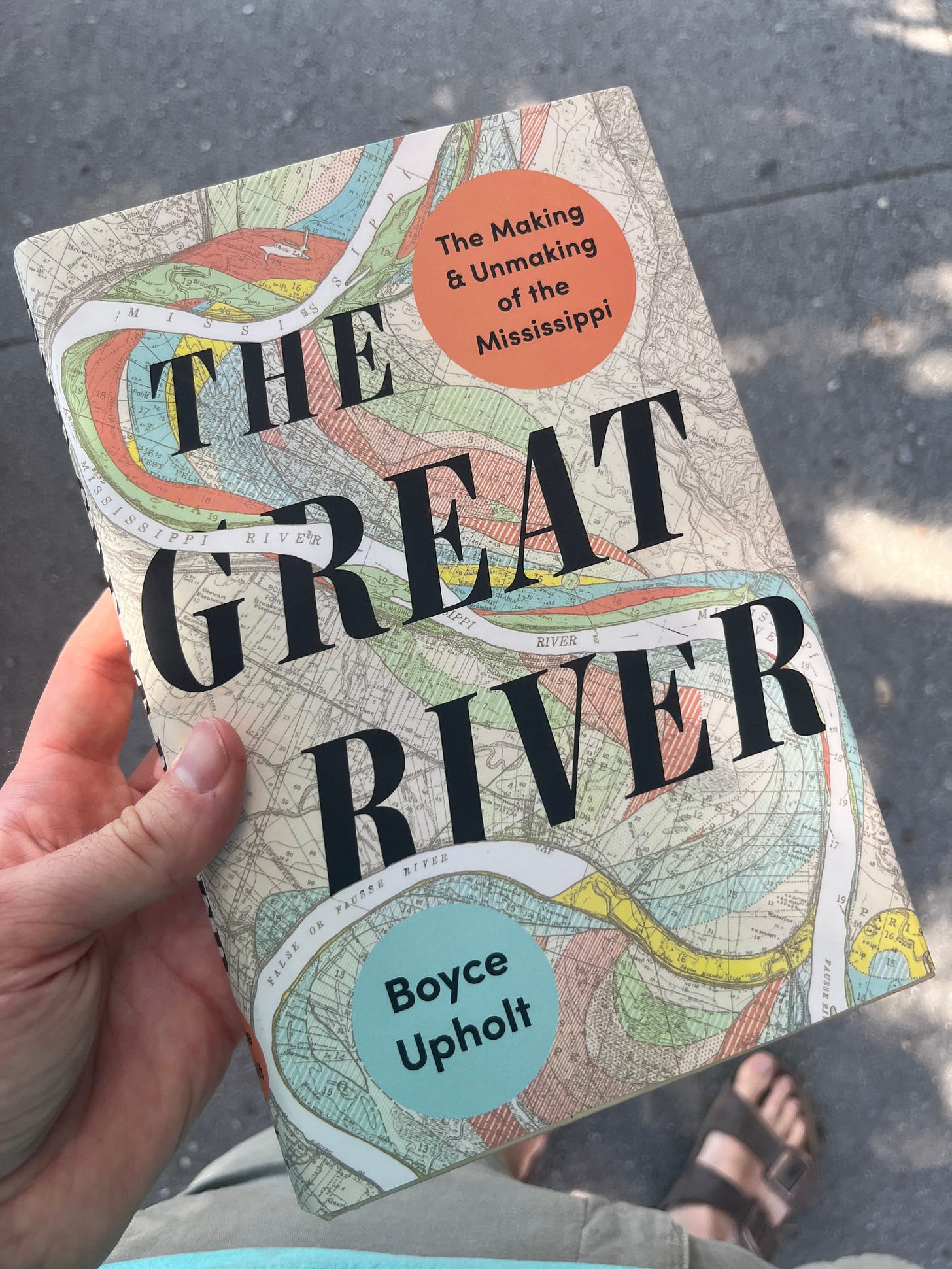“The Mississippi is well worth reading about,” Mark Twain wrote back in 1883. “It is not a commonplace river, but on the contrary is in all ways remarkable.”
I agree, though I’ve always found this a rather self-promotional first sentence for a book titled Life on the Mississippi.
Show, don’t tell, Mark—didn’t you get the memo?
At any rate, readers are in luck this season. A year ago, I joked on Twitter that I hoped some other Mississippi-focused book might appear around the same time as mine—that way someone might write a joint review. I couldn’t have guessed then that there’d be a small shelf’s-worth of books arriving this spring and summer.
Interested in these books? If you pre-order The Great River and buy at least one other 2024 river-themed book, you can enter a raffle for this Mississippi Party Pack.
There’s a good reason why the Mississippi River has long caught the attention of American writers: It is the most salient geographical fact of our continent—a river that, through a web of water, drains all of the Midwest. This vast watershed pulled frontiersmen beyond the Appalachian Mountain, thereby forcing “the men of the East to think in American terms instead of European,” as historian Frederick Jackson Turner put it. The Adventures of Huckleberry Finn is sometimes considered the first American novel for similar reasons: Rather than ape European customs, Twain tried to forge a new, American style. “There was nothing before,” Hemingway once said. “There has been nothing as good since.”
This idea—that the Mississippi River made America itself, by offering its first frontier—leaves out plenty, though, especially the complex questions of what (and who) “America” includes. Huck Finn’s float down the Mississippi has inspired countless larks over the past 150 years, including several of mine. And Twain’s novel does romanticize the river, compellingly, but to see this novel as just an adventure story is to forget the presence of Jim—an enslaved man whose own float had deadly stakes. Percival Everett’s new novel, James, retells—and reworks—Twain’s classic story, in searing fashion. Read this novel and you’ll never forget the stakes Jim faced in that era. Though as another novel, Troubled Waters, reminds us, the struggles aren’t over.
Mary Annaïe Heglar is known best for her essays on climate change, and climate figures in this story, too: Corrine, the novelist’s protagonist, is a young woman whose brother died while working on a boat bearing oil up the Mississippi. The tragedy feeds her growing conviction that the world faces a crisis. Corrine eventually decides she must do something—but her act of resistance will force her to reckon with the difficulties that her family has faced through generations, as Black activists seeking a better world. It’s a lovely debut novel.
Mississippi had the type of beauty you had to leave to appreciate. . . in the summer, all the colors came alive and seemed to throb. She knew that she would want to protect this glory for the rest of her life. —Mary Annaïse Heglar, Troubled Waters
Muddying Thinking in the Mississippi River Delta is the most theoretical of this bunch of books—an ambitious effort to unpack the cultural history of the river’s southernmost reach to explore the strange paradox that is Louisiana. Ned Randolph, a professor at Tulane University, explores how it can be that a place so vulnerable to climate change pumps so much oil.
Randolph pins some blame on the “imagined” Mississippi—a river that is “frozen in time and place by memory and earthen walls.” In its natural state, of course, the Mississippi was never static, always changing. The physical infrastructure—mostly built by the U.S. Army Corps of Engineers—has stopped its wiggling. But Randolph points out that the engineers could not have built such infrastructure had we as a nation not conceived of the river as something that could be conquered and tamed. “The long history of intervention in the river [has] been so ‘naturalized’ that the possibility of the river resuming its prehistoric behavior of meandering came to be seen as unnatural,” he writes.
For a good example of how we normalize extraction, consider the movie Louisiana Story, which was nominated for an Academy Award in 1948. It’s about the idyllic life in the swamps—including the friendly presence of the local neighborhood oil drillers. Photographer Virginia Hanusik cites this movie in her introduction to Into the Quiet and the Light, a book that explores, in visual form, the infrastructure and architecture that has resulted from our long misinterpretation of the river. It’s an effort, then, to update our picture of this river and its complexity. Anyone who know Ginny’s work already knows that the images will be spectacular, but this book is lifted even higher thanks to the voices of many other Louisianans who contribute essays.
One of the great insights of Ginny’s photos is the fact that, despite the engineering and its consequences, the river remains startling beautiful. Indeed, the idea of an ugly, tainted river is perhaps the most persistent myth about the Mississippi—and one of the most damaging. Really, there are few places in the country as beautiful—though, compared to the grandeur of mountains, “most of the beauty in the river’s world is more subtle,” as Dean Klinkenberg writes in The Wild Mississippi: A State-by-State Guide to the River’s Natural Wonders. It’s the latest guidebook from one of the most knowledgeable river rats around, an authoritative overview of the river’s natural and cultural history. Not least, it offers a list of the natural areas in every Mississippi River state. It’s a book worth keeping tucked in your dash—or, if you’re a paddler, your drybag—as you make your way along this river.
“The Mississippi invites us to slow down,” Dean writes in his introduction—and if you want an example of what slowing down can look like, turn to the new memoir by writer and musician Tapper Haskins, Crooked Old River: Rowing Toward Redemption on the Mississippi. Paddling memoirs sometimes have a Huck Finn problem: they’re all romance, nothing more. At one point, I thought my own book would contain more paddling, but it was difficult to get out of travel writing to jump into the complex history I wanted to expore. I’m happy to report that Trapper is deft enough to pull this off, and he’s a beautiful writer, too. This is an excellent memoir, a reminder that, even if there’s more to the Mississippi River than Huck Finn adventures, paddling trips can be life-altering and restorative. As John Hartford sings, “Where else but a muddy old river would a person want to be?”
My goal in The Great River was to explore not just what’s been done to the Mississippi, but also why it’s been done. And that why has everything to do with how the river has been seen. There is an old story by Jorge Luis Borges, so brief that it’s basically just a startling image: a map so large that it perfectly covers the territory it’s meant to represent. For obvious reasons, people found this map to be of little use, so they left it to rot until just a few tattered bits remained.
“I’ve come to think of the modern river as something like this map: it’s an imagined canvas we’ve stretched atop the geological frame of the continent,” I write in The Great River. This set of books offers many details about the map, and about the actual river beneath. Seeing them all here, together, gives me hope that, through the rips in the canvas, more and more people are beginning to see a different river beneath.
Go take a look. I think you’ll like what you find.
Interested in these books? If you pre-order The Great River and buy at least one other 2024 river-themed book, you can enter a raffle for a Mississippi Party Pack!
Southern nature news
Last week, I mentioned a new seafood labeling law. Turns out that by the time I hit send on that email, the law had already passed.
In other news…
An open letter on Louisiana’s coast
A lawsuit in the Atchafalaya Basin
DeSantis gets ride of ‘climate change’
The uneasy efforts to save the hawthorn tree
How your hardiness has changed
America’s first Black-led conservancy
Bipartisan agreement that the Farm Bill sucks
A Chesapeake oyster renaissance
Mangroves at risk
Okefenokee ‘propaganda’












Well, I have added a bunch of books to my TBR on Goodreads! You are in with a great cohort of folks and I'm patiently awaiting your book that I pre-ordered last fall.
FYI, the hardiness zone link is the same as your hawthorn link.